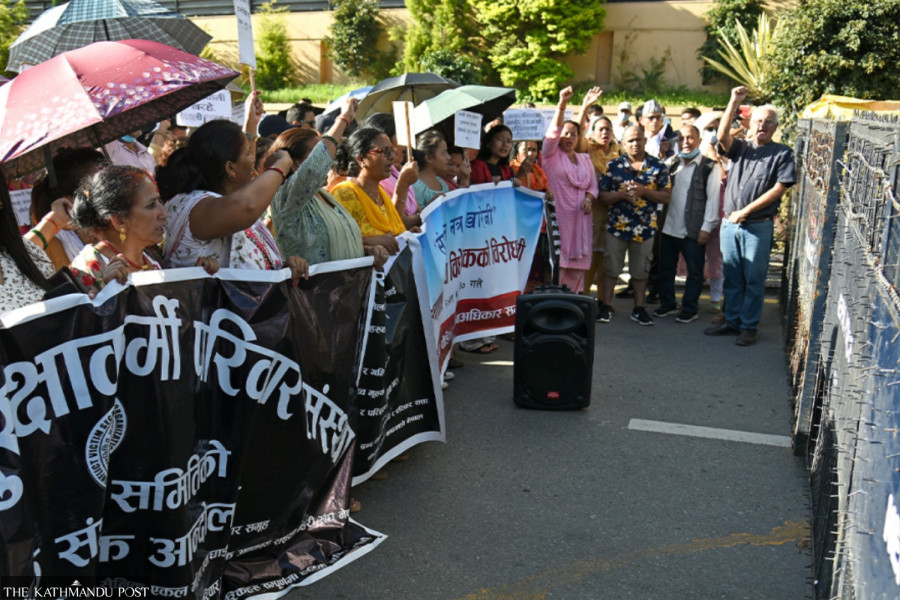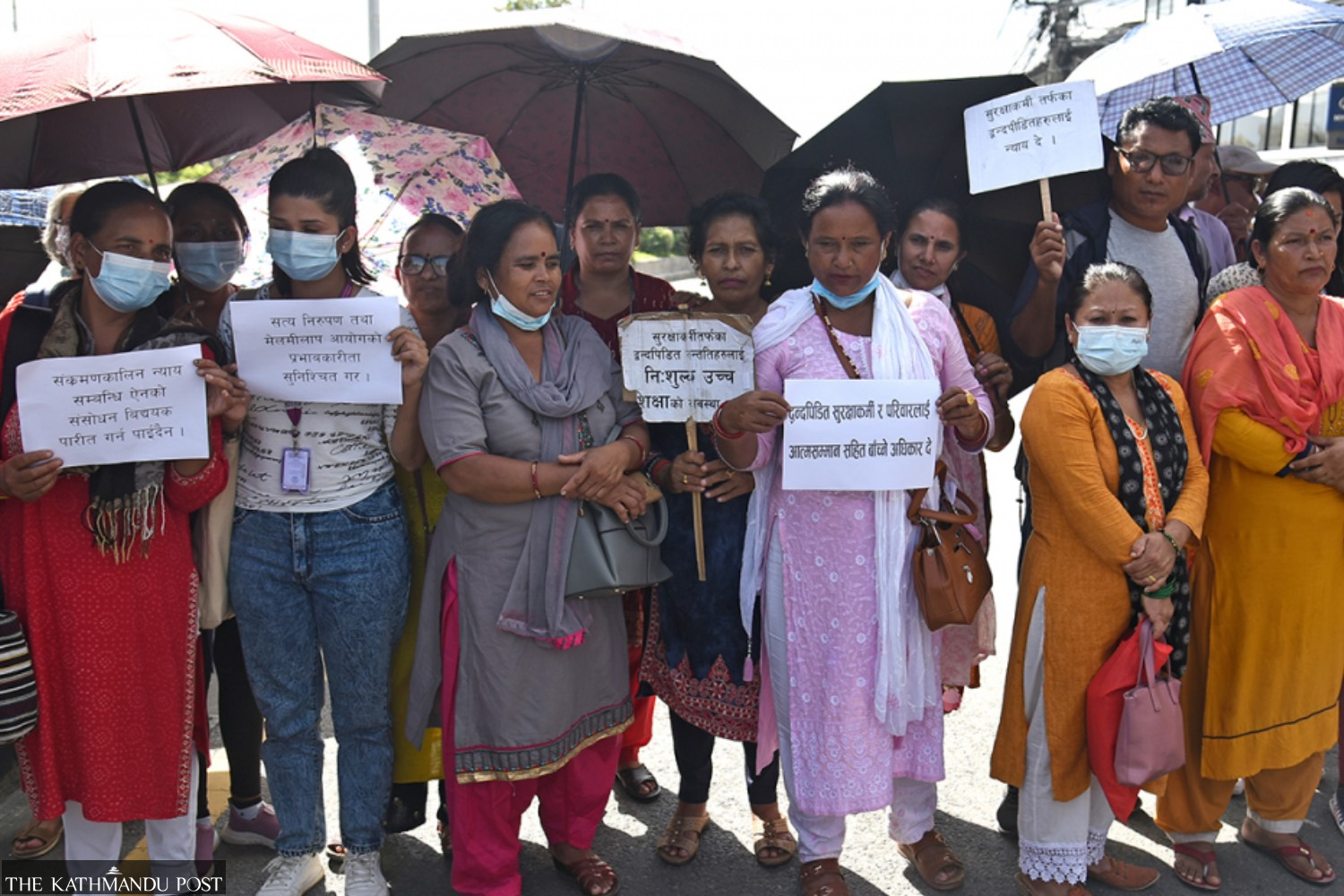National
Victims protest planned changes to transitional justice law
During a demonstration on Monday, conflict victims and civil society members said the current bill drafted to amend the law favours the perpetrators and is unacceptable.
Binod Ghimire
Pressure is mounting on the government to revise the bill to amend the Enforced Disappearances Enquiry, Truth and Reconciliation Commission Act that is pending in Parliament for a month.
On Monday, civil society members joined the protesting conflict victims, who have been holding a series of demonstrations demanding that the government and the political parties should not endorse the bill without a revision. Hundreds of conflict victims and civil society members waving placards and chanting slogans demonstrated near the federal parliament at New Baneshwar in the afternoon.
Seven years after the Supreme Court ordered the government to remove the amnesty provisions in the Act, the government on July 15 registered an amendment bill in Parliament. However, the bill drew criticism from various quarters forcing the government to withhold it.

Addressing the demonstrators, Sushil Pyakurel, a former member of the National Human Rights Commission, said the amendment bill in its existing form favours the perpetrators, hence it is unacceptable. “The bill wasn’t introduced to give justice to the victims,” he said. “It only aims to provide amnesty even in serious cases of human rights violations.”
The joint protest of the victims, civil society members and human rights activists was held a day after the National Human Rights Commission said there were serious flaws in the bill that contradicts the international principle of transitional justice. The commission has called for a 12-point revision of the bill including inclusion of war crimes, crime against humanity and issues of the former child combatants.
The protesters on Monday said the government should stop further victimising the conflict victims, who have been fighting for justice for nearly two decades now. Though the peace process began with the signing of the Comprehensive Peace Accord in 2006, thousands of victims of the atrocities from the state agencies and then rebel CPN-Maoist are yet to get justice.

Though the present government drafted the bill after consultations with the victims and civil society members, it has failed to duly embrace the spirit of the Supreme Court verdict and international practice, according to the protestors.
The bill says “cruel murder” or murder after torture, rape, enforced disappearances and inhumane or cruel torture committed against unarmed or ordinary people during the insurgency are serious human rights violations and non-amnestiable. It, however, doesn’t list war crimes and crimes against humanity under serious human rights violations.
The bill has opened the door for amnesty for murder by saying only “cruel murder” will be non-amnestiable, thus providing a loophole to define all murders as non-cruel and grant amnesty for all murders.

They also have said the provision that the verdict of the Special Court cannot be appealed at the Supreme Court is against international fair trial guarantees. They also object to the provision that the insurgency-era cases of human rights violation that are sub judice in the district courts and high courts will be sent to the two commissions to ascertain if they indeed are cases of serious violations of human rights.
“The bill should get through parliament after changing the problematic provisions,” said Suman Adhikari, founder chair of the Conflict Victims Common Platform whose father was killed by the Maoists in 2002, addressing the protest. “We don’t have patience to wait further.”





 13.12°C Kathmandu
13.12°C Kathmandu














